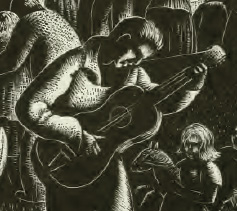 One tends to remember making major life-changing decisions on April Fool’s Day. So I can tell you that it was April 1, 1995 when I decided to get a master’s degree in Information or Library Science. Even now, I sometimes wonder, is this whole thing just a cosmic joke? Is some unseen trickster entity laughing at my feeble attempts to manufacture order where none can exist? Probably. But I may never know.
One tends to remember making major life-changing decisions on April Fool’s Day. So I can tell you that it was April 1, 1995 when I decided to get a master’s degree in Information or Library Science. Even now, I sometimes wonder, is this whole thing just a cosmic joke? Is some unseen trickster entity laughing at my feeble attempts to manufacture order where none can exist? Probably. But I may never know.
The most dangerous 16 months of my life began on that day. I had just missed the deadline for the next academic year, and would have to wait for the application period to roll around again. Meanwhile, I was living in Chapel Hill/Carrboro and working as a cook in various restaurants. Many opportunities for mischief would materialize. At one point, a housemate had just about convinced me to head for Alaska to work the salmon boats. It was that kind of a year. I was engaged in the most extravagant of all human behaviors, marking time.
Two things saved me from a career of wading through fish guts: the guitar and the library. It wasn’t the first time that I relied on the guitar to get me through a shaky patch, and it would not be the last. Not that I was ever very good at it — having a tin ear kind of limits a person’s musical potential — but looking at a year of waiting to fill out an application, I decided to do something I’d always wanted to do. I would learn to play fingerstyle.
I had no idea of the worlds that would open up on making the decision to put down the pick and start using the fingers of my right hand. Within a few months my little rented upstairs room would roar with the blazing chops of the Reverend Gary Davis; I picked up the knowing smile that only comes from devoted listening to Blind Willie McTell’s ultra-cool voice and peerless 12-string technique; and my sense of the relationship between heaven and earth would realign under Blind Willie Johnson’s pocketknife slide.
But as mentioned, my ear of tin limited my own approach to playing. A text-oriented person like myself goes for the books first, and so I did what I, as a serial dilettante, always do in the developing stages of a new interest. I went to the library and checked out stacks of books.
The books that I pulled from the shelves of Davis Library at UNC included the Frank C. Brown Collection of North Carolina Folklore. It’s a seven-volume set but numbers 2-through-5 were what weighed down my backpack: “Folk ballads from North Carolina,” “Folk songs from North Carolina,” “The music of the ballads,” and “The music of the songs.” I was on the hunt for simple, elemental, meaningful melodies to pluck on guitar, and then backfill with syncopation and harmony. My repertoire, such as it was, derived from any number of books whose titles and authors I could no longer tell you, but I developed a particular intimacy with the Frank Brown books.
Frank Clyde Brown was an English professor and administrator at Duke. He oversaw the construction of the Durham campus and founded the NC Folklore Society. A contemporary of John Lomax, he engaged in a similar kind of ballad-hunting, but focused on the state of North Carolina. Following his death, Duke University Press assembled his collection into the seven-volume monograph published between 1952 and 1964.
During that year-and-a-third of waiting, I worked up arrangements for probably a dozen tunes from the collection. I really only play two anymore: “The Hamlet Wreck” (#290 from the ballads) and “Cold Cold Mountains” (#277 in the songs). The former relates to the devastating wreck of an excursion train carrying the congregation of Durham’s St. Joseph’s A.M.E. church to Charlotte. The latter song is a minor-key piece resembling “Wayfaring Stranger” that I worked up in drop-D tuning.
To make an already long story a bit shorter, once I got to grad school, the multitude of assignments pulled me away from guitar. But I always wanted to do something with the FCBCNCF books. A decade later, working at Duke, we built a digital collection around the construction of the campus that featured Frank Brown prominently, but ignored his role as folklorist. Then last year, when we were looking for books to send to UNC-Chapel Hill for digitization by their Scribe scanner there, I had a ready suggestion. Not too long ago, the books appeared in the Internet Archive.
One of the privileges of my job lies in contributing to the development of other people’s ideas and research interests, but in this case I have my own personal connection and history with the material. I think there’s more we can do with the 314 ballads and 340 songs that appear in volumes 2 through 5, but at the moment I’m just glad to see the books online and available to inspire anyone who needs to mark a little time before grad school.


Amazing Article , I thought it was exceptional
I look ahead to more interesting postings like this one. Do you have a RSS I can subscribe to for new postings?